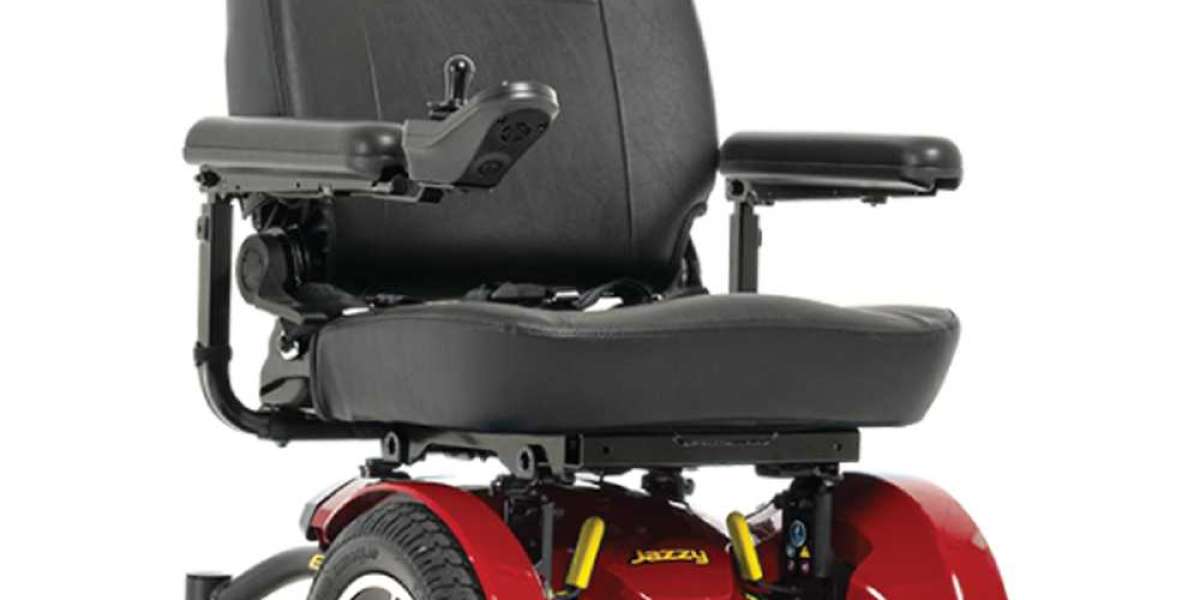Introduction
Finding the right mobility product is essential for enhancing independence and quality of life. With a wide range of options available, from wheelchairs and scooters to walkers and canes, choosing the best fit requires careful consideration of individual needs, preferences, and lifestyle. This article explores various mobility products, provides reviews, and offers recommendations to help you make an informed decision.
Understanding Your Needs
Before selecting a mobility product, it's crucial to understand your specific needs. Consider factors such as the level of mobility required, the environments you navigate daily, and any medical conditions that may affect your mobility. For instance, someone who needs assistance with long-distance travel might benefit more from a power wheelchair or scooter, while those needing support for shorter distances might find a manual wheelchair or walker sufficient.
Wheelchairs: Manual vs. Power
Wheelchairs come in two main types: manual and power. Manual wheelchairs are propelled by the user or an attendant, offering a lightweight and portable option for those with sufficient upper body strength. They are ideal for short distances and can be easily transported in vehicles. Power wheelchairs, on the other hand, are motorized and controlled by a joystick, providing greater independence for individuals with limited upper body strength. They are suitable for both indoor and outdoor use, offering various seating and positioning options for comfort and support. Discover the right fit for your mobility needs with Heavy Duty Mobility Scooters explore our reviews and recommendations today.
Mobility Scooters: Versatility and Convenience
Mobility scooters are popular for their versatility and convenience. They are available in three-wheel and four-wheel models, each offering different levels of stability and maneuverability. Three-wheel scooters are easier to navigate in tight spaces, making them ideal for indoor use. Four-wheel scooters provide greater stability on uneven terrain, making them suitable for outdoor activities. Key features to consider include battery life, weight capacity, and comfort.
Walkers and Rollators: Stability and Support
Walkers and rollators are designed for individuals who need extra stability and support while walking. Walkers typically have four legs and may include wheels on the front legs for easier movement. Rollators are equipped with wheels on all legs and usually include a seat for resting. They offer greater mobility and are ideal for individuals who can walk but need additional support to maintain balance. Key considerations include height adjustability, weight capacity, and ease of folding for transport.
Canes and Crutches: Lightweight Solutions
Canes and crutches are lightweight mobility aids that provide support for individuals with minor balance or stability issues. Canes come in various designs, including single-point and quad-point, which offer different levels of support. Crutches, often used temporarily after an injury, help redistribute weight from the legs to the upper body. Choosing the right cane or crutch involves considering the height, handle design, and material.
Reviews and Recommendations
When selecting a mobility product, it's helpful to read reviews and seek recommendations from healthcare professionals or other users. User reviews provide insights into the durability, ease of use, and overall satisfaction with the product. Healthcare professionals can offer personalized advice based on your specific needs and medical conditions. Additionally, trying out different products before making a purchase can help ensure the best fit and comfort.
Wheelchairs
Wheelchairs are one of the most common mobility aids, available in both manual and electric versions. Manual wheelchairs are typically lighter and more affordable, but they require physical strength to operate. Electric wheelchairs, on the other hand, offer greater ease of use and are ideal for individuals with limited upper body strength. When choosing a wheelchair, consider factors such as weight capacity, seat width, and battery life for electric models.
Walkers and Rollators
Walkers and rollators provide stability and support for individuals who can walk but need assistance. Walkers are basic frames with four legs, while rollators come with wheels, a seat, and often a basket for carrying personal items. Rollators are more versatile and easier to maneuver, but they may not be suitable for all terrains. When selecting a walker or rollator, look for features like adjustable height, weight capacity, and ease of folding for transport.
Mobility Scooters
Mobility scooters are ideal for individuals who need to cover longer distances but have difficulty walking. These scooters come in three-wheel and four-wheel models, with the latter offering more stability. Key considerations when choosing a mobility scooter include battery range, maximum speed, weight capacity, and portability. Some models are designed for indoor use, while others are built to handle rough outdoor terrain.
Canes and Crutches
Canes and crutches are simple yet effective mobility aids for those who need minimal support. Canes are best for individuals with slight balance issues, while crutches provide more substantial support for those recovering from injuries. When choosing a cane or crutch, ensure it is the correct height and has a comfortable grip. Some models come with additional features like foldability and built-in seats.
Drive Medical Scout Compact Travel Power Scooter
The Drive Medical Scout Compact Travel Power Scooter is a popular choice for its portability and ease of use. It features a quick-connect battery pack, adjustable armrests, and a comfortable swivel seat. Users appreciate its compact design, making it easy to transport and store.
Medline Heavy Duty Rollator
The Medline Heavy Duty Rollator is designed for individuals who need extra support and stability. It features a reinforced frame, large wheels for smooth movement, and a padded seat for resting. Users praise its durability and the convenience of the built-in storage bag.
NOVA Medical Products Heavy Duty Walking Cane
The NOVA Medical Products Heavy Duty Walking Cane is a reliable option for those needing minimal support. It features an offset handle for better grip, a non-slip rubber tip, and is adjustable in height. Users find it sturdy and comfortable to use.
Conclusion
Choosing the right mobility product involves understanding your needs, exploring available options, and considering user reviews and professional recommendations. Whether you need a wheelchair, scooter, walker, cane, or crutch, finding the right fit can significantly enhance your independence and quality of life. Take the time to research, try out different products, and consult with professionals to make an informed decision that best suits your mobility needs.
FAQs
- What factors should I consider when exploring mobility products?
- Consider factors such as your level of mobility, the environments you navigate daily, any medical conditions affecting your mobility, and your lifestyle preferences.
- What are the main types of wheelchairs available, and how do they differ?
- Wheelchairs come in manual and power variants. Manual wheelchairs are propelled by the user or an attendant, while power wheelchairs are motorized and controlled by a joystick, offering greater independence.
- How do mobility scooters vary, and which features should I prioritize when choosing one?
- Mobility scooters come in three-wheel and four-wheel models, each offering different levels of stability and maneuverability. Consider features such as battery life, weight capacity, and comfort when choosing one.
- What are the key considerations when selecting walkers and rollators?
- When choosing walkers and rollators, consider factors such as height adjustability, weight capacity, and ease of folding for transport.
- How can user reviews and professional recommendations help in selecting the right mobility product?
- User reviews offer insights into durability, ease of use, and overall satisfaction with the product. Healthcare professionals can provide personalized advice based on individual needs and medical conditions.



